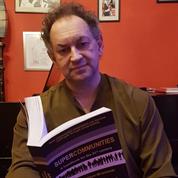In the 21st century, even the prosperous often have poor quality of life. Recent mental health statistics showed that huge numbers of people in the UK are mentally ill - between 1993 and 2014 there was a 35% rise in adult mental illness, and 28.2% of women and 9% of men aged 16-24 now have a mental health condition.
While the experience of poverty increases one’s risk of suffering from several severe psychological disorders, there is some evidence that in fact the key causal relation may be the other way around – what is called social drift, by which the onset of mental health issues impairs the ability to function in educational or professional environments, causing an individual to “drift” down the socioeconomic ladder[i].
Clearly, medicalisation of mental health issues isn’t working. The BBC reported on 28 March 2005 that 78% of GPs prescribe antidepressants despite believing that an alternative treatment would be more appropriate. A decade later, the Daily Mail reported (10 July 2015) that 1 in 11 British adults take antidepressants, and The Guardian reported (5 July 2016) that antidepressant prescriptions in England have doubled to a total spend by the NHS of £285m/year.
Antidepressants are only the tip of an iceberg. Let’s put aside the costs to social care, education, policing, justice, and so on, and just consider health. The annual cost to the NHS of “Medically Unexplained Symptoms” - repeated complaints to GPs of symptoms for which tests come up negative, a syndrome commonly recognized as requiring non-medical intervention - is a staggering £3 billion[ii]. This equates to £50 per man, woman and child per year.
This is the health cost of unhappiness, and the underlying reasons are familiar. In the 21st century, relationships are increasingly unstable - family structures are less traditional; family and social networks are no longer physically co-located; extremism threatens the safety of communities everywhere - and the problem is exacerbated by systematic, sustained destruction of supportive community infrastructures.
For several decades, automation and globalisation have been commoditizing labour, while financial deregulation has decreased investment in growth. In 1971, 90% of foreign exchange transactions were for financing trade and long-term investment, with only 10% speculative - by the 1990s, the percentages were reversed.[iii] Even those governments who would wish to mitigate asset stripping from their communities are now too deeply indebted to do so.
Communities must be rebuilt. We must help people become happier, by providing them with local supports – what are called community assets. Such assets are not those typically found on balance sheets. As Kent and Medway Councils write[iv], “Every community has assets; facilities such as libraries and community centres, valued businesses, parks are obvious. But most importantly the people and their capacities; organised community groups or individuals who have skills and talents.”
The RSA Catalyst project Town Digital Hub (“Your one stop shop for better local living”)[v] categorizes community assets as addressing 10 different wellbeing issues:
- Activity
- Eating Well
- Helping
- Meeting People
- Learning
- Work & Finance
- Safety
- Transport
- Drugs & Alcohol
- Culture
Faith, Diversity, and Equality are treated as cross-cutting considerations rather than as wellbeing issues in themselves. Whatever categorisation is used, we must start identifying community assets, aligning them to remove gaps/overlaps, and allowing people to use them in personal wellness plans. So, what type of assets are we talking about, and how can we encourage their development?
My next blog will discuss how a RSA new event series in the town of Frome in Somerset, which is widely recognized as pioneering and socially progressive[vi], is contributing to local development of community assets. I’ll also share details of the next event, on Thursday 26 Jan, featuring Professor Susan Hallam MBE, the internationally acclaimed author of the influential and wide-ranging 2015 research report “The Power of Music”, plus live funk, classical and traditional folk music from local musicians!

Join the discussion
Comments
Please login to post a comment or reply
Don't have an account? Click here to register.
Very good point indeed. Look forward to hearing more